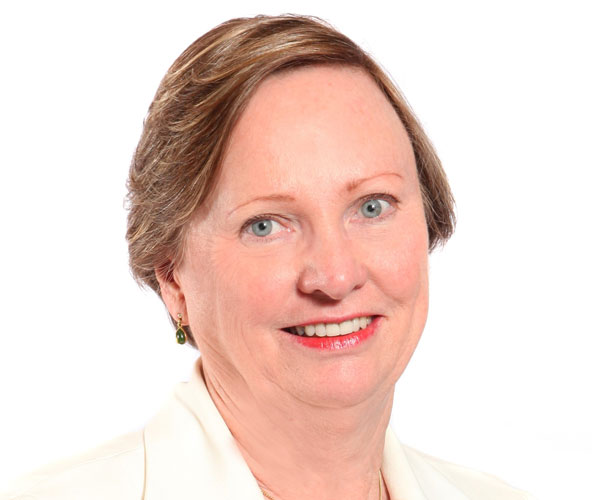Roseanne Diab, an Emeritus Professor at the School of Environmental Sciences of the University of KwaZulu-Natal, in Durban, South Africa, and Special Advisor for the TWAS GenderInSite initiative, received the prestigious TWAS Medal for her unceasing efforts to achieve a step change towards gender transformation in science worldwide. 
The recognition was bestowed at the TWAS Fifteenth General Conference, held virtually from 1–4 November, and organized by the King Abdullah University of Science and Technology in collaboration with the Islamic Development Bank.
GenderInSite is an international initiative that aims to promote the role of women in science, innovation, technology and engineering and to promote awareness amongst decision-makers that policy and programs will be more effective and sustainable when a ‘gender lens’ is applied.
Diab currently chairs the TWAS Gender Advisory Committee. She is the former Executive Officer of the Academy of Science of South Africa and is recognised for her scientific contributions in the field of atmospheric sciences, particularly air quality, climate change and tropospheric ozone variability. She has been a Fulbright Senior Research Scholar and a member of many international bodies, including the International Ozone Commission.
In particular, she is now renowned internationally for advocating the importance of 'gender responsiveness' in organizations, referring to outcomes that reflect an understanding of gender roles and inequalities, and through which efforts are made to encourage equal participation and equal and fair distribution of benefits. Such an approach is particularly needed in science.
In her Medal Lecture, Diab expressed her gratitude to TWAS for the enormous opportunity the Academy gave her through its prestigious recognition. And in her speech, she addressed "The Role of Gender-Responsive Organizations in Global Science," explaining the concept and expanding on it. Being gender-responsive, she said, means creating an environment that promotes an inclusive approach, recognizing the needs of both women and men. There are still many unconscious biases that prevent building a workplace where everybody is appreciated, respected and treated equally. Unfortunately.
A gender-responsive organization, she continued, may contribute enormously to science, a field in which many women scientists are active and productive. Gender responsiveness may eradicate the roots of inequality among women and men by addressing individual self-improvement and the unequal power relations between men and women.
"We tend to think that numerical gender parity is a good achievement in itself and that increasing the number of women fellows within institutes and academies is a valuable milestone," Diab said in her presentation. She continued, “However, gender transformation involves far more than achieving gender parity. It is a shift from a focus on statistics to a deeper dimension that embraces an understanding of the needs and aspirations of all people, especially women.”
She mentioned a report published in September of this year titled "Gender Equality in Science: Inclusion and Participation of Women in Global Science Organizations: Results of two global surveys", which included data collected from 85 academies. The report revealed, for example, that the mean share of women elected to membership of academies rose from 13 per cent, registered in a previous 2015 survey, to 17 per cent in 2020. On average, all academies experienced a moderate increase in women’s membership, but 19 of them still reported values of as little as 10 per cent female membership.
Addressing only the notion of parity in numbers is not enough. We need to take bolder steps, encouraged Diab. Institutions and academies worldwide should give more visibility to women scientists. And she explained why three steps are necessary: "Women scientists should be given more decision-making power within the election committees because, at present, we see mostly men working in the 'control room'. Women should also be given greater visibility as keynote speakers, because the output of their research is no less significant than men’s and deserves to be profiled to a greater extent."
Finally, Diab said, women should have greater control over resource allocation. This remark supports the notion of gender budgeting, which according to the definition given by the European Institute for Gender Equality, means a gender-based assessment of budgets, incorporating a gender perspective at all levels of the budgetary process. In the absence of gender budgeting, gender inequalities will persist.
Gender equality is an investment, remarked Diab. Studies show a link between greater gender equality and increased growth and employment. In addition, evidence confirms that improvements in gender equality would generate up to 10.5 million additional jobs by 2050 and that the European Union employment rate would reach almost 80 per cent.
But too few scientific institutions invest in gender equality. From the survey she mentioned earlier, Diab revealed how only 30 out of 84 academies have a policy that explicitly mentions the need to increase women's membership, and more than 60 per cent of the academies have no formal plan in place. On a similar note, a strong signal that an organization is showing respect would be the existence of a sexual harassment policy. Sadly, another gap that needs to be filled.
Concluding with a comment on TWAS, Diab noted that "TWAS has great potential to play a powerful gender-transformative role and to influence norms and practices in science academies across the developing world. TWAS draws its fellows, prize winners and attendees at events from multiple countries and also has five regional partners through which it can play an influential role.” And finally, she concluded, “Achieving gender transformation requires the engagement of both men and women. It's not only a men's or women's responsibility: we can travel this journey together."
Cristina Serra

